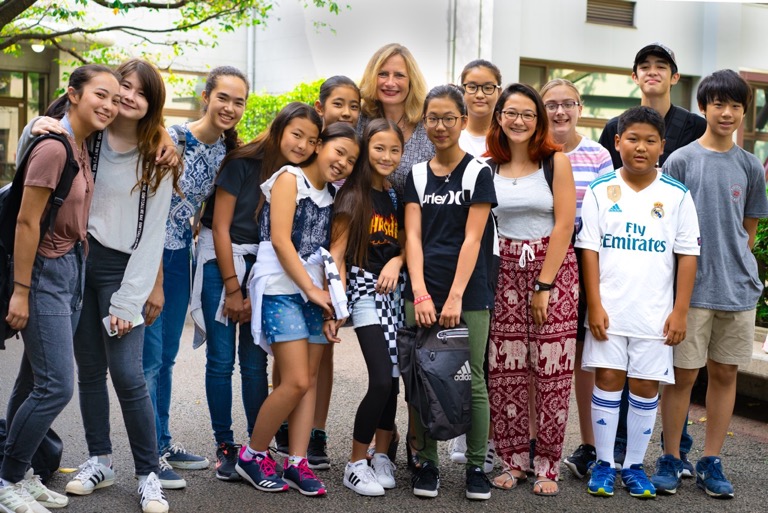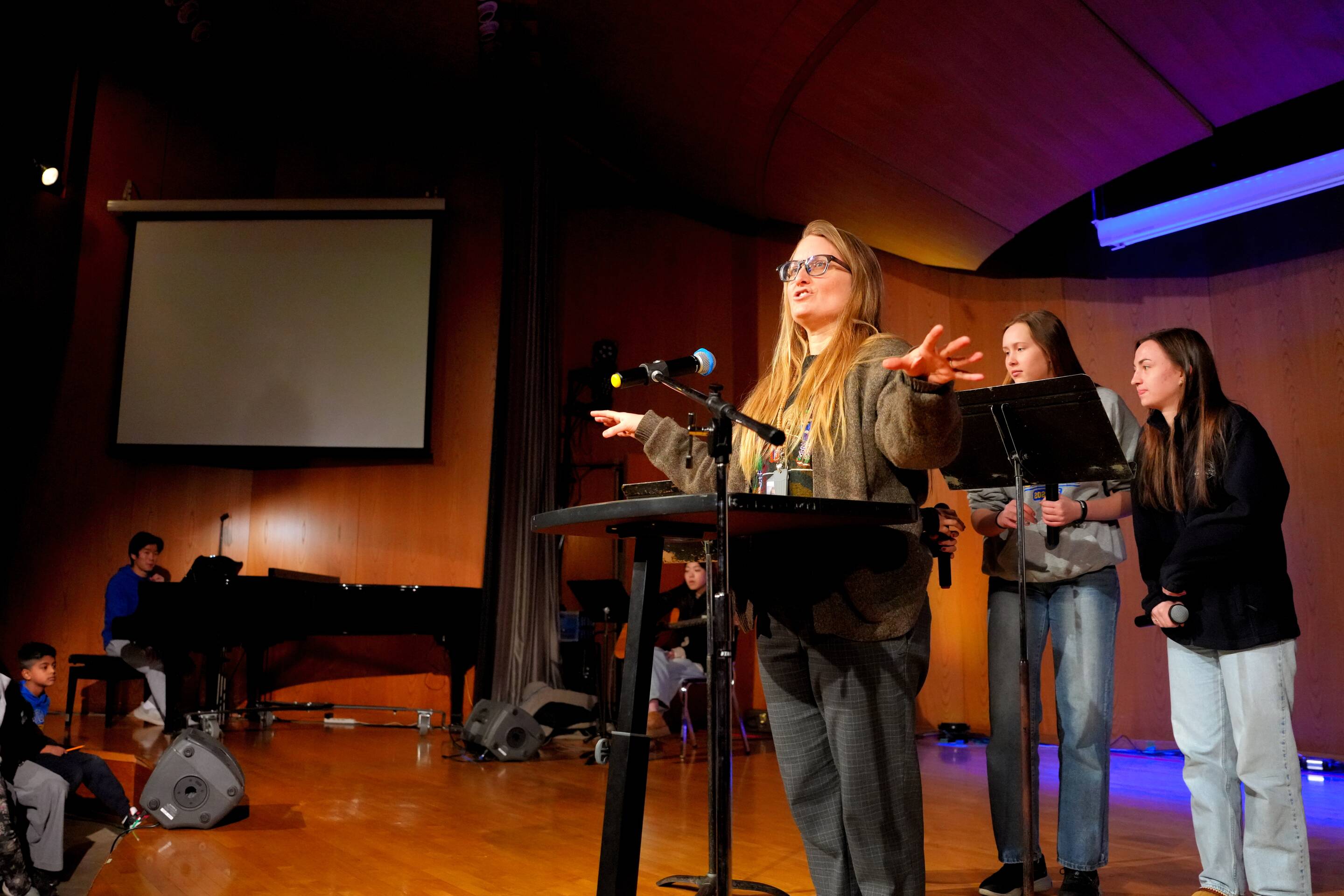Educating the Whole Child
09/10/2018 13:48
True confession: when I look back on the important lessons I've learned in my life, most of them did not happen while sitting quietly at a desk listening to a monotonous lecture. Research supports this confession. Students learn more when they are actively involved in the learning process. At CAJ, we strive for academic excellence, understanding that students will retain what they learn far better when they are able to explore ideas, ask questions, discuss with peers, make mistakes, move their bodies, create with their hands, conduct experiments, and experience emotions. In other words, they must be fully invested participants in their learning. Sometimes, this means that education moves outside classrooms. It is not unusual to walk across our campus and see a high school class taking part in a historical simulation, middle school students in small groups dramatizing a story, or elementary students seated under the trees writing and illustrating haiku.
Because we believe learning happens in so many active ways, we also place a high value on co-curricular activities. Students might not receive grades for running cross-country, grappling on the wrestling mats, playing the saxophone in Jazz Band, or playing a dramatic role on the stage, but these activities will be important aspects of their education. Through co-curricular activities, students learn teamwork; they gain an understanding of their own strengths and weaknesses, and they find out how far they might be able to push themselves. They may even gain a sense of purpose and discover their passion.
God delights in variety, and we do at CAJ as well. We believe a wide range of teaching strategies and learning experiences help all students learn more about how they reflect the image of God.





